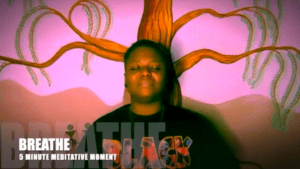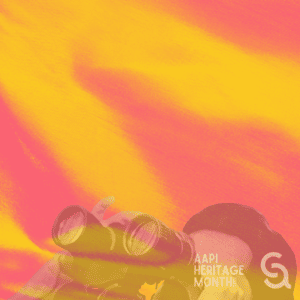
Editor’s Note: We are reprinting this essay, originally published in 2018, because we feel it is helpful in the current cultural conversation.
“…we’re on the same side. I’m your ally.”
I’ve heard a version of this sentiment too many times to count over the years, and after taking a deep breath and stifling the urge to roll my eyes, my response is always the same: You cannot name yourself as an ally; that title is bestowed upon you. It should not be assumed.
I’m tired of offering up these words but do so with consistency because I’m all too familiar with the frustration and anger that people feel when those who do not navigate the world as they do presume to speak on their behalf. My experiences—specifically those related to my Blackness, my queerness, and my womanness—have led to me encountering people who have appointed themselves to be my allies. It’s exasperating because said people have done so without knowing me, without knowing my interests, and sometimes without us ever having had a single conversation.
I’m going to be very candid about issues in allyship because too many people feel like they’re above reproach, and acting out of that assumption compounds the injustice that others have to deal with. My job is to speak plainly and not mince my words because I know comfort is a luxury of privilege. You must do the work of listening and interrogating yourself, as your feelings should not be elevated above the wellness or dignity of those who endure marginalization because of their race, sexuality, gender, class, religion, ability, or any other facet of their identity.
The reality is that the way many people approach allyship is toxic. Too many individuals appoint themselves as allies for those with whom they have failed to meaningfully engage—while also declaring what they intend to do for their sake. That isn’t solidarity, that’s paternalism. And it’s condescending and dehumanizing. When you declare yourself to be someone’s ally without their consent or invitation, it disregards their sense of agency and self-determination, which works against any desire for justice you may have in your heart.
When you declare yourself to be someone’s ally without their consent or invitation, it disregards their sense of agency and self-determination.
Those of you who desire to be allies to people experiencing marginalization have identity configurations that afford you degrees of privilege that they do not possess. As such, you must take care to be mindful of the way said privilege causes you to function in the world. There’s nothing wrong with having a desire to leverage or utilize what resources you have to be in service to others. The challenge lies in appointing oneself as the ally of another without knowing them or asking them what they need.
How can you be allied with someone with whom you do not have a relationship?
No one who has ever named themselves as my ally has actually been allied with me. Without exaggerating, I can say that I honestly cannot think of a single person who has ever purported to speak on my behalf without my invitation or consent who has done so in a way that honors me. These self-appointed advocates have not taken the time to get to know me as a person. They have failed to engage me in dialogues to see the things that affect my heart or stir my soul. These people—however well-meaning they may be—have failed to do the most basic work to build a relationship with me. I see these things reflected in the stories others have shared with me, and I remain convinced that no healthy model of allyship can exist when communal bonds are absent. Audre Lorde says, “Without community, there is no liberation,” so I question what the point of allyship is if it doesn’t lend itself to us all being free.
…no healthy model of allyship can exist when communal bonds are absent.
I believe that you can only do better once you know better. Now that you’ve been expressly told what doesn’t work and why, it may help to process through how you can come alongside people who experience oppression that you do not—in ways that are healthy and respectful.
Your journey to becoming an ally does not begin when you start to care about the marginalization someone else experiences. You do not become an ally when you show up to a rally, march, or engage in other forms of protest. You do not become an ally when you decide to don the en vogue apparel or accessories representative of pop culture progressivism (e.g. pink hats; safety pins).
You become an ally when another person confers that title upon you. I won’t presume to speak for others, but I know this designation is one that I grant to those who have stood in solidarity with me over time. My allies are people who have worked to amplify my voice, expressed needs, and perspectives, who show up for me in ways that reflect that they care for, respect and desire to honor me, and who are able to accept correction when I share that they have somehow missed the mark. The commitment these people have to my well-being—which includes my personal development and pursuit of equity for my sake—has been proven by time or by their extension of things they know are meaningful to me, like presence and resources.
If you’re looking for a less-engaged process that requires little effort, being an ally may not be the path for you. True allyship is costly, and the initial price one pays is in humility. When you desire to be allied to another you must commit to the ongoing inner work that will help you submit to someone else’s direction, and respect their sense of self-determination. You must work to understand that not only do people experience the world in different ways, what holds worth for you may not have have value to others. You have to accept that you are in relationships with other human beings, not with canvases on which you can project your morality or vision of the world.
True allyship is costly, and the initial price one pays is in humility.
Allyship isn’t easy, but nothing that is truly worth pursuing ever is. You will mess up, you will stumble, but so long as you follow the leadership of those you seek to stand in solidarity with, you will be okay. So press pause on however you were approaching things before, and take the time to really get to know people who hold the world in different ways. Not for the sake of satiating a misguided sense of saviorism, but because you understand that they are people with a history, a present, and a vision worth getting to know. And prepare yourself to stand in solidarity with them in whatever ways you can, if in that place of knowing they invite you to come alongside them as an ally.
Alicia T. Crosby, M.A. is a justice educator and activist whose work addresses the spiritual, systemic, and interpersonal harm people experience. Through her facilitating, writing, speaking, and curating space, Alicia helps individuals, communities, and institutions alike explore and unpack topics related to identity, intersectional equity, and inclusion. This native New Yorker turned Chicagoan commits to justice seeking and community building through work with her nonprofit Center for Inclusivity as well as in her public speaking and writing. Follow Alicia’s other work on Facebook, Twitter, and Instagram via @aliciatcrosby.



One Response
I stumble over every mention of “allyship”. I have family and friends from — literally — all over the globe. I’ve never tried to be more than family, more than a friend. And that is enough. My highest aspiration and greatest joy.
I have no allies that I know of, and I do not seek to be an ally. Finding myself in agreement with another is generally sufficient.